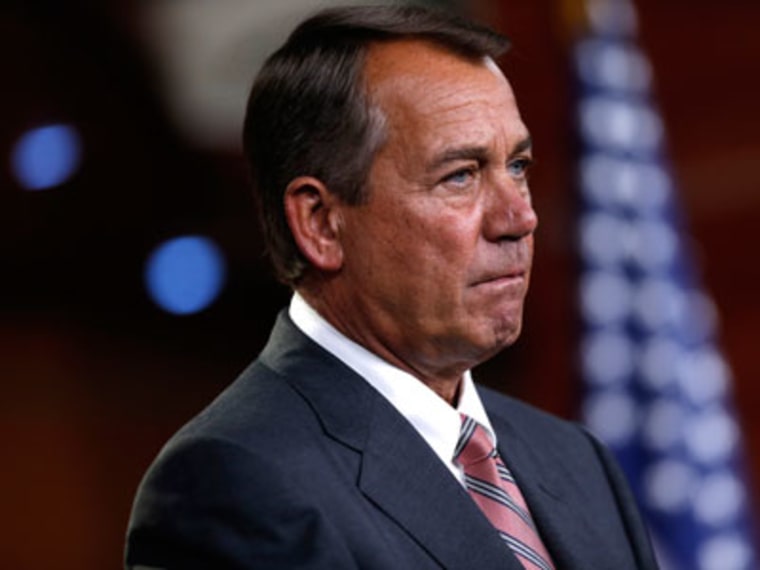More than 24 hours after the Supreme Court left a gaping hole in the Voting Rights Act and invited Congress to fill that hole with new legislation, Congressional Republicans have no plan on how they might move forward.
"The voting rights act has played an important role over the last 40 years," House Speaker John Boehner said when asked Wednesday morning about the ruling. "We are reviewing the decision and trying to determine what the proper steps going forward are."
Democrats, on the other hand, have already signaled their support for drawing up new legislation. Senate Judiciary Committee Chairman Patrick Leahy stepped up quickly to say how eager he was to work with his colleagues to "restore the protections" the Supreme Court's ruling blocked.
Of the handful of Congressional Republicans who have spoken out on the issue, few have provided any guidance on how they would like to proceed.
South Carolina Sen. Lindsay Graham released a statement in which he said Section 4 of the Voting Rights Act is "no longer necessary."
"Section 4 of the Voting Rights Act was a necessary tool to preserve voting rights, but due to the reform and advances in South Carolina election law, it is no longer necessary," said the statement. "The Supreme Court noted this tremendous progress in South Carolina's electoral system and it was the underpinning of their decision. I concur with the Court that our state has made tremendous progress."
Graham believes Section 4 is no longer useful comes in spite of the fact that the Justice Department blocked the voter ID passed in his state in 2011 in part because of data that revealed the law would have a disproportional impact on black voters.
Mississippi Rep. Alan Nunnelee had a similar response, praising his state for making progress while ignoring the fact that the Justice Department had held its voter ID up to significant scrutiny in recent months.
"Mississippi has come a long way since 1964," he said in a statement. "And today has the highest number of African-American elected officials in the country. This is strong evidence that rules designed to right the wrongs of previous generations have outlived their usefulness."
Tennessee Sen. Bob Corker more doubtful, and perhaps more realistic. He told Huffington Post he's uncertain lawmakers will "ever" come together to restore the law. Despite its 2006 re-authorization with wide bipartisan support--unanimous in the Senate and only a few dozen Republicans in the House opposing it--he thinks the legislation is doomed today. "I just cannot imagine--I'm just being honest--Congress ever coming to terms with what they could agree on."
At this point, only House Majority Leader Eric Cantor has spoken with any resolution about his desire to move forward on legislation to help restore the protections provided to minority voters by Section 5 of the Voting Rights Act.
"My experience with John Lewis in Selma earlier this year was a profound experience that demonstrated the fortitude it took to advance civil rights and ensure equal protection for all," Cantor said in a statement. "I'm hopeful Congress will put politics aside, as we did on that trip, and find a responsible path forward that ensures that the sacred obligation of voting in this country remains protected."
While Republicans in Washington have been slow to move, at the state level they have reacted rapidly. Within hours of the decision, Texas Attorney General announced plans to move forward with some of the voting changes that the Justice Department had blocked. Mississippi official quickly followed suit, announcing plans to immediately implement voter ID laws. In North Carolina, Republicans who had been hesitant to take on strict voter ID legislation because of the potential Justice Department hurdles are now moving full steam ahead on the legislation. In both Georgia and Florida, Republicans are free and expected to start moving forward on new restrictions as well.
